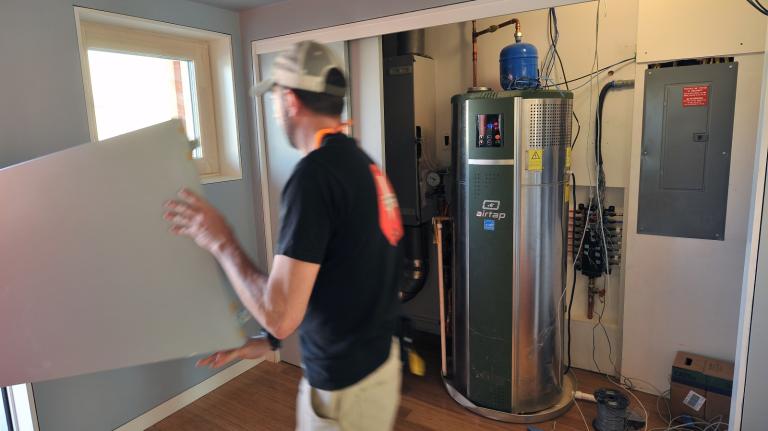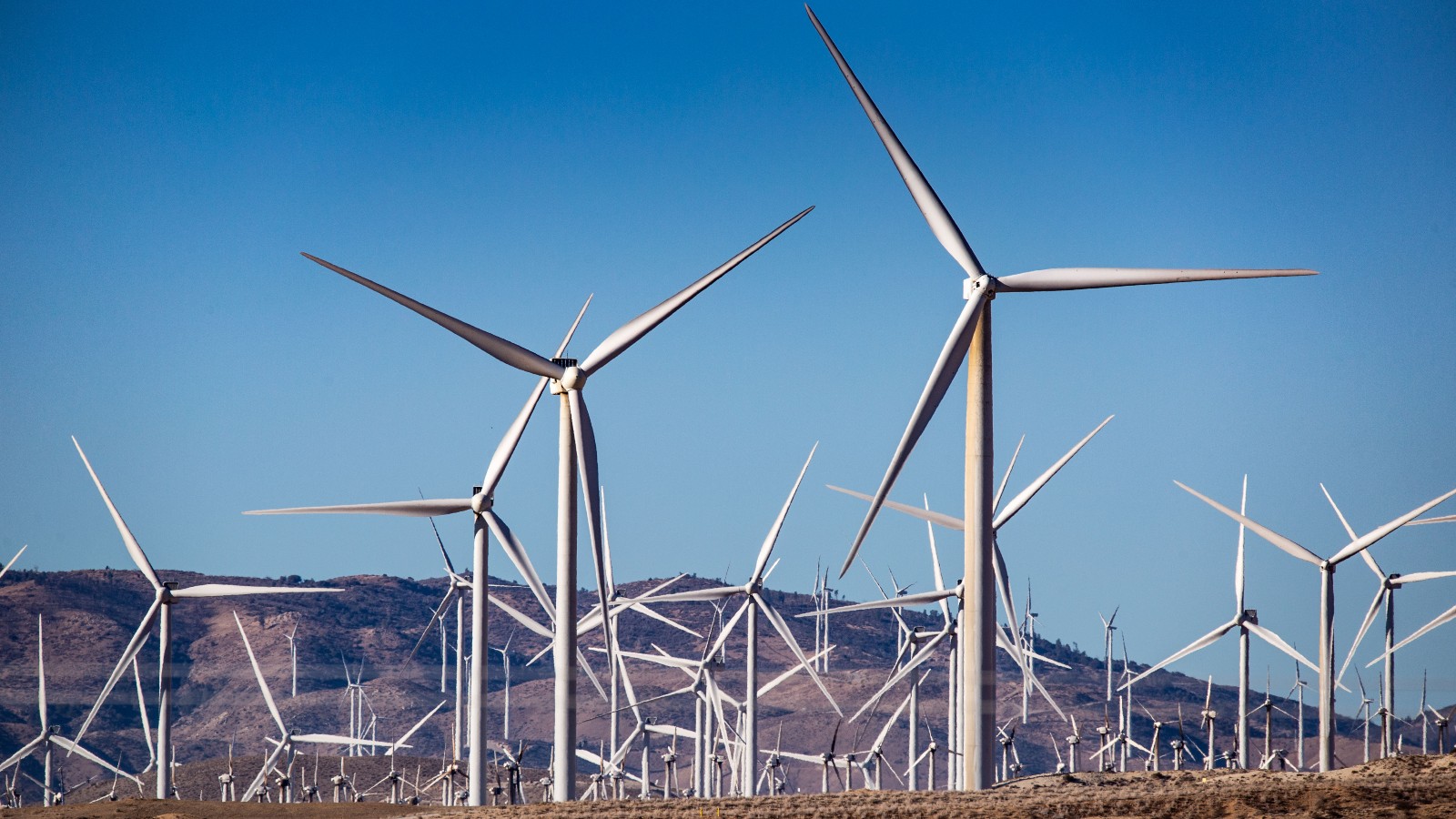The White House has proposed a new rule to streamline permitting for clean energy and other infrastructure projects under the National Environmental Policy Act, or NEPA, a bedrock law that requires federal agencies to conduct an environmental review before approving any major project. The rule would implement the permitting compromise reached under the debt ceiling deal that Congress passed in early June, roll back certain Trump-era changes to NEPA, and require agencies to consider environmental justice and climate change in project reviews.
The rule, proposed by the White House Council on Environmental Quality, the executive body in charge of implementing NEPA, is the latest push by the Biden administration to address regulatory obstacles to developing clean energy. Experts lauded the latest NEPA rule as a small but meaningful step toward much-needed permitting reform in the U.S.
Max Sarinsky, senior attorney at New York University’s Institute for Policy Integrity, described the rule as “fairly modest and incremental” to E&E News. “We’re in an era where preserving the environment often means building new things,” he said. “I think these regulations are trying to be sensitive to that.”
The new rule would codify the permitting compromise reached in the Fiscal Responsibility Act, the legislation that Congress passed to prevent the U.S. from defaulting on its debts earlier this summer. The changes required under that law included designating a lead agency for each project review and setting stricter deadlines and page limits for assessments. The rule would also grant federal agencies discretion to adopt other agencies’ “categorical exclusions,” which classify certain types of projects as exempt from environmental impact assessments if they’re seen as having minimal impacts.
Environmental justice and advocacy groups have decried the permitting changes in the debt ceiling deal, saying they could help expedite the buildout of polluting infrastructure without adequate review or input. Some law and policy experts have said that the exact impacts may only be revealed later as agencies revise their processes and courts begin to interpret the new language.
The rule also marks the second in a series of regulations to reverse NEPA rollbacks made under the Trump administration. A rule finalized last year reinstated a requirement for federal agencies to consider direct, indirect, and cumulative impacts of a proposed federal action. The new rule would reverse changes made in 2020 that limited public input and judicial challenges under NEPA, including a provision stating that concerns raised in litigation must have been first submitted during the official public comment period.
The council’s proposal last Friday would also direct agencies to consider climate change and environmental justice impacts in their reviews. And for the first time, the rule would encourage agencies to identify strategies to avoid or mitigate cumulative impacts on communities, which could spare overburdened communities from further sources of pollution. The Southern Environmental Law Center, an advocacy group, hailed these actions as “overwhelmingly positive.”
The proposal also attempts to strengthen public engagement by requiring agencies to appoint a chief public engagement officer to lead community engagement during NEPA reviews. Experts say the changes could help make lengthy and technical review processes more accessible and transparent to the general public. “They make clear that the purpose of NEPA is not to promote paperwork, even excellent paperwork, but rather to encourage better decisions,” said Mark Squillace, a natural resources law professor at the University of Colorado Law School.
The Council on Environmental Quality’s proposal arrives one day after the Federal Energy Regulatory Commission finalized a rule to speed up the process of connecting wind, solar, and battery projects to the power grid. The commission’s rule prioritizes connecting energy projects that are closest to installation in a “first-ready, first-served” process, among other changes.
Environmental experts and groups lauded the Council on Environmental Quality’s rule as a long-awaited reversal of Trump-era NEPA regulations, even as other permitting challenges for renewable energy loom ahead, including a shortage of transmission lines to move clean electricity to consumers.
“As we face the worsening impacts of the climate crisis, entrenched environmental injustice, and accelerating biodiversity loss, we must invest in NEPA as an essential framework to build the infrastructure and drive the solutions that we urgently need in this decade,” said Abigail Dillen, president of the nonprofit Earthjustice, in a statement.
Editor’s note: The Southern Environmental Law Center and Earthjustice are advertisers with Grist. Advertisers have no role in Grist’s editorial decisions.




